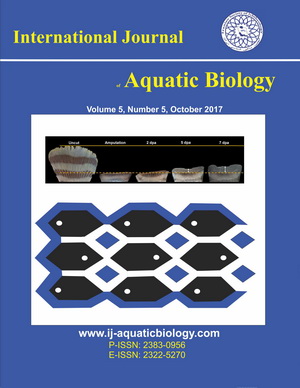Effects of short-term starvation and re-feeding on antioxidant defense status in Mesopotamichthys sharpeyi (Gí¼nther, 1874) fingerlings
Vol. 2 No. 5 (2014): October
Articles
September 24, 2014
Downloads
Najafi, A., Salati, A. P., Yavari, V., & Asadi, F. (2014). Effects of short-term starvation and re-feeding on antioxidant defense status in Mesopotamichthys sharpeyi (Gí¼nther, 1874) fingerlings. International Journal of Aquatic Biology, 2(5), 246–252. https://doi.org/10.22034/ijab.v2i5.136
Downloads
Download data is not yet available.








